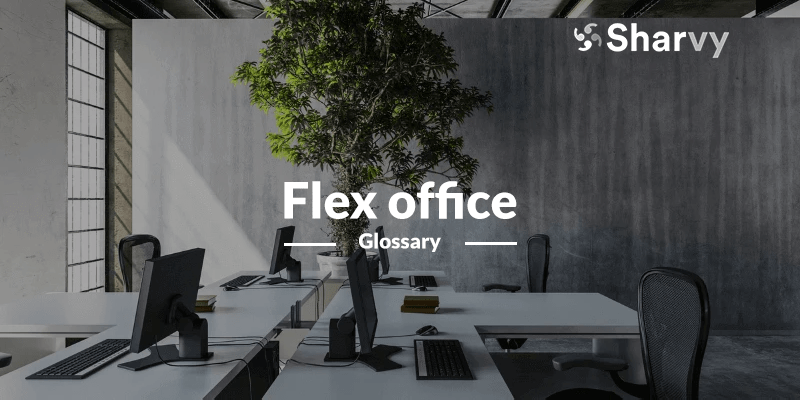What is the flex office? – Definition
Flex office is a modern version of work organization.
In this type of organization, employees are no longer assigned to a specific workstation. Instead, they can work wherever they want, in the space that best suits their needs and daily tasks.
From then on, they can move freely without hierarchical and/or corporatist concerns. Moreover, the teams of each division are invited to mix and create links, which contributes to developing a robust corporate culture.
On a day-to-day basis, the operation is relatively simple. Each employee has a dedicated and secure storage space to store their laptop and other personal belongings. When they arrive at the office, all they have to do is pick up their belongings and move into the workspace that suits them for the day. In addition, each employee cleans up their workstation and puts it back in order.
Note that the flex office goes hand in hand with a hybrid work organization. From then on, the employee can freely carry out one or more days of telework during the week, according to his wishes. In these cases, they take their laptop and equipment with them.
The objective is to allow each employee to choose the workspace in which they will be the most comfortable and productive. However, flex office is to be distinguished from desk sharing.
Why is the flex office gained momentum in recent years?
Today, many companies, both large and small, have made telecommuting a daily practice for their employees. Not least as a result of the Covid-19 crisis, which has been a global catalyst for implementing new ways of organizing work.
However, in correlation, there has been a drastic decrease in companies’ occupancy rate of workspaces. As a result, there are many vacant offices and under-optimized spaces today.
Faced with this situation, business leaders are gradually rethinking the “classic” organization of work to optimize the available square meters previously unexploited.
From then on, and to meet this need, many companies are resorting to flex office! This is a sensible way to adapt their workspaces to their workforce while reducing their real estate costs (whose price keeps rising due to inflation).
What opportunities does it hold for companies?
Companies can benefit from a wide range of opportunities by opting for this mode of operation. The flex office allows them to :
- Reduce real estate costs : In 2021, according to the ARSEG, an individual office will cost an average of €10,250 per year. However, 50% to 60% of the time, they are vacant and unused. This is why flex-office operations allow companies to redistribute the surface area they have to optimize. This reduces the number and size of unoccupied workstations. In correlation, companies manage to reduce costs and save on the rental or purchase of additional space!
- Gaining agility & working in project mode : reducing rigidity and constraints allows employees to break out of routine. Thus, find new perspectives and ideas more easily. This boosts their productivity and creativity. Moreover, the multiplication of shared spaces that the flex office generates favors exchanges between transversal teams and improves project management.
- It also allows companies to reduce their carbon footprint and to engage in a CSR approach : between the massive use of telecommuting, the reduction of travel time, the autonomy and trust granted to employees, the cross-functional management… The flex office is also a lever regarding talent retention and brand image. However, it must be correctly deployed.
In this respect, and for a virtuous deployment, one thing remains to be watched ! Every morning should not be a frantic race for the best place. A desk booking system like Sharvy could be the solution to avoid friction!

